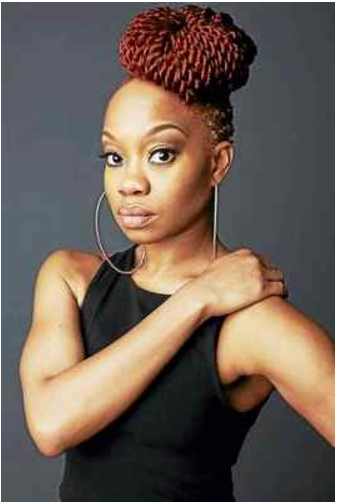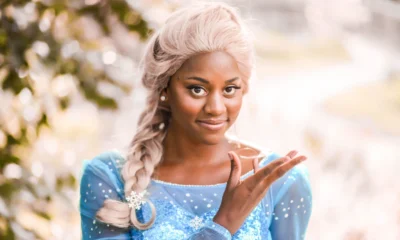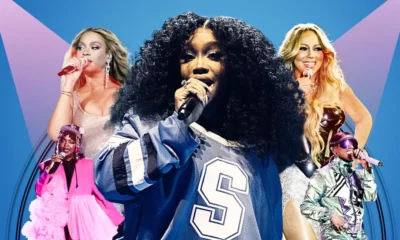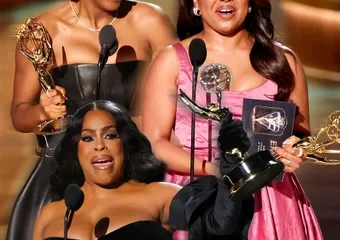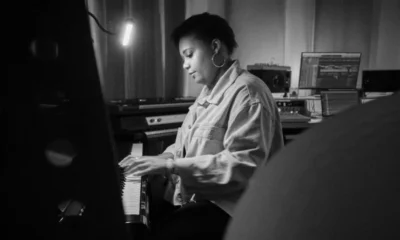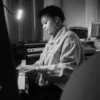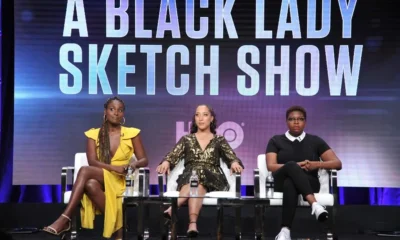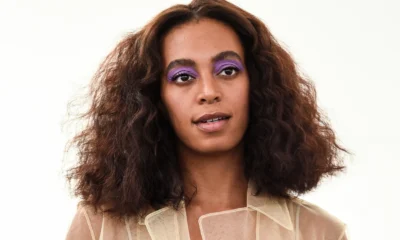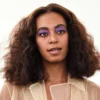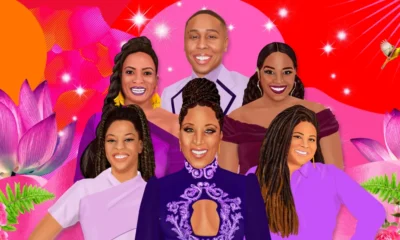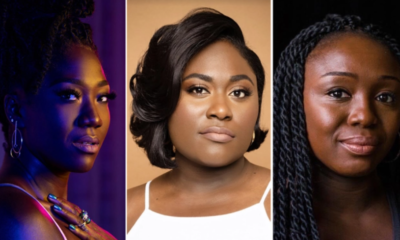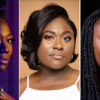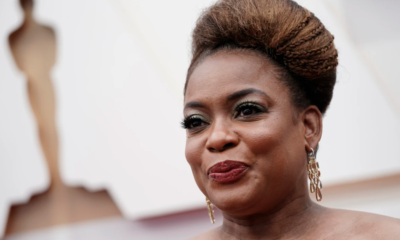Black Women in Entertainment
Camille Brown jumps, riffs to dispel stereotypes in ‘Black Girl: Linguistic Play’
They’ll be sneaker-stomping and riffing, double-Dutch jump-roping and hand-slapping to notify the world that black girls are not to be defined by stereotypes, and that, they, too, as Cyndi Lauper generalized, just want to have fun.
But the idea of fun gets personal when Camille A. Brown, choreographer and artistic director of Camille A. Brown & Dancers, brings the company to University Theatre June 15-16 at 8 p.m. for two performances of her “Black Girl: Linguistic Play.” The 2015 work examines how black girls play, how they celebrate life — not as defined by the world, but through the prism and layers of Brown’s personal experiences as a black woman/girl. The event is part of the International Festival of Arts & Ideas, which runs through June 24.
Inspired by Kyra Gaunt’s book “The Games Black Girls Play,” and stirred creatively by some of the audience feedback in post-performance talkbacks after her 2012 Bessie Award-winning “Mr. Tole E. Rance,” the Queens-based dancer/choreographer felt a need to use the concept of play and bust some moves to bust some of the negative stereotypes surrounding black women.
Gaunt’s book, says Brown by telephone during a rehearsal, is “about how black girls use play as a form of identity and connection and encouragement and positive reinforcement of your identity.”
The energetic 90-minute work (tickets $35-$75, artidea.org) takes the audience “from childhood innocence” with pantomime double-Dutch jump-roping to “girlhood self-awareness to maturity,” where street-dancing adds a theatricality to that play.
“But it’s not about black stereotypes,” says Brown, a three-time (and first female choreographer) winner of the Princess Grace…
Please read original article- Camille Brown jumps, riffs to dispel stereotypes in ‘Black Girl: Linguistic Play’



